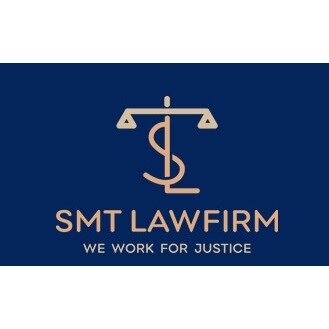About Divorce & Separation Law in Chiang Mai, Thailand
Divorce and separation in Chiang Mai, like the rest of Thailand, are governed by the Thai Civil and Commercial Code. This legal framework provides the rules and regulations for marriage dissolution, including contested and uncontested divorce procedures, child custody, alimony, and division of property. Chiang Mai has legal structures and procedures that cater to both Thai nationals and foreigners, with specific regulations that may require careful consideration. Understanding the nuances of these laws is crucial for anyone considering or going through a divorce in this region.
Why You May Need a Lawyer
Divorce and separation can be legally complex processes. Here are common situations where legal help may be necessary:
- Contested Divorce: When both parties cannot agree on terms such as asset division, custody, or alimony, legal representation is crucial.
- Property Division: Understanding the legal entitlement to matrimonial assets requires expertise in Thai property law.
- Child Custody and Support: Navigating Thai laws regarding parental rights and duties benefits greatly from legal insight.
- International Divorce Issues: If one partner is a foreign national, additional legal complexities may arise involving immigration status or conflict of laws.
- Legal Documentation: Proper drafting and filing of legal documents can ensure that the divorce process moves forward smoothly.
Local Laws Overview
Chiang Mai adheres to the broader Thai Civil and Commercial Code, which contains various provisions related to divorce and separation. Key aspects include:
- Grounds for Divorce: These include adultery, misconduct, desertion, imprisonment, separation, and insanity, among others.
- Uncontested Divorce: Couples can mutually agree to divorce registered at the local district office if all terms are settled.
- Contested Divorce: Involves court proceedings where a judge decides on unresolved issues between spouses.
- Child Custody: Typically favors parental agreement, but may be adjudicated by the court based on the child's best interests.
- Property Division: Follows the principle of community property where marital assets are divided equally unless specified otherwise in a prenuptial agreement.
Frequently Asked Questions
What are the legal grounds for divorce in Chiang Mai?
The legal grounds include proven misconduct by a spouse, infidelity, desertion, imprisonment of more than one year, living apart for more than three years, and other serious situations adversely affecting the marriage.
Can foreigners file for divorce in Chiang Mai?
Yes, foreigners can file for divorce, but they must meet residency requirements, and the process can vary slightly depending on their nationality.
How is child custody determined?
Custody is determined based on what the court deems to be in the best interest of the child, considering factors such as the parents' ability to care for the child and the child's welfare.
What happens to marital assets during a divorce?
Marital assets are divided equitably, following Thailand's community property laws unless a prenuptial agreement specifies otherwise.
Is mediation an option in Chiang Mai?
Yes, mediation is encouraged as a way to reach mutual agreements outside of court proceedings, which can be less adversarial and more cost-effective.
How long does the divorce process take in Chiang Mai?
The timeline varies. Uncontested divorces can be completed relatively quickly, while contested divorces involving court litigation can take several months to years.
Are prenuptial agreements recognized?
Yes, prenuptial agreements are recognized in Thailand, but they must meet specific legal requirements to be enforceable.
How can spousal support or alimony be arranged?
Spousal support is not automatically granted and must be negotiated or ordered by the court. It depends on several factors, including the duration of the marriage and financial stability of each spouse.
What if one parent wants to relocate with the child?
Relocations must be addressed in custody agreements or court orders, with the child's welfare as a primary consideration.
Can a divorce be reversed?
Generally, once finalized, divorces cannot be reversed. However, parties can remarry if both agree.
Additional Resources
Individuals seeking further assistance or information may consider contacting the following resources:
- Chiang Mai Provincial Court
- Local Family Law Offices
- The Ministry of Justice in Thailand
- Non-Governmental Organizations providing legal aid
- Community Legal Clinics
Next Steps
If you need legal assistance with divorce and separation in Chiang Mai, consider the following steps:
- Consult with a local family law attorney to understand your rights and obligations.
- Collect and organize relevant documentation, including marriage certificates, financial records, and any agreements.
- Explore mediation services to resolve disputes amicably.
- Visit the Chiang Mai Provincial Court if legal filings or proceedings are needed.
- Utilize resources like legal aid organizations for support if you cannot afford private legal services.
Lawzana helps you find the best lawyers and law firms in Chiang Mai through a curated and pre-screened list of qualified legal professionals. Our platform offers rankings and detailed profiles of attorneys and law firms, allowing you to compare based on practice areas, including Divorce & Separation, experience, and client feedback.
Each profile includes a description of the firm's areas of practice, client reviews, team members and partners, year of establishment, spoken languages, office locations, contact information, social media presence, and any published articles or resources. Most firms on our platform speak English and are experienced in both local and international legal matters.
Get a quote from top-rated law firms in Chiang Mai, Thailand — quickly, securely, and without unnecessary hassle.
Disclaimer:
The information provided on this page is for general informational purposes only and does not constitute legal advice. While we strive to ensure the accuracy and relevance of the content, legal information may change over time, and interpretations of the law can vary. You should always consult with a qualified legal professional for advice specific to your situation.
We disclaim all liability for actions taken or not taken based on the content of this page. If you believe any information is incorrect or outdated, please contact us, and we will review and update it where appropriate.





![Legal & Business Consultancy in Chiang Mai [LBC CHIANGMAI]](https://lawzana.com/storage/firms/2674/16209701614886.jpg)










